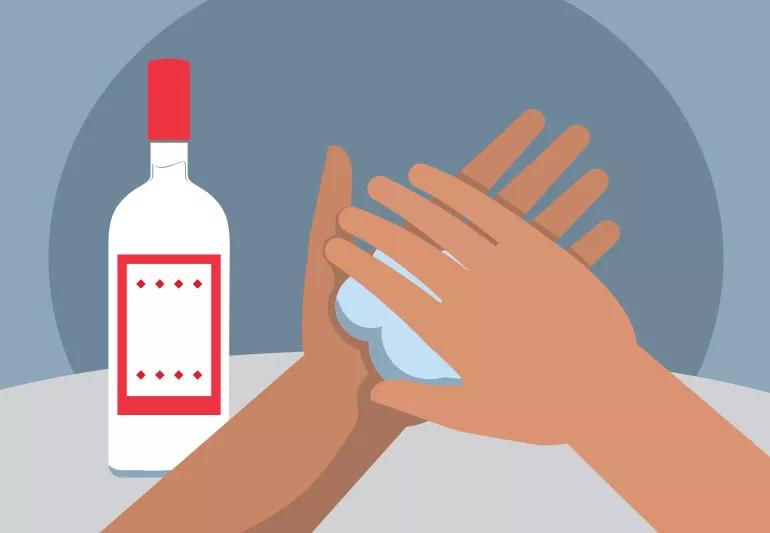The short answer from an infectious disease specialist

Image content: This image is available to view online.
View image online (https://assets.clevelandclinic.org/transform/b5c7ffd0-b58b-4603-a24e-4492218b6ee7/vodkaWashHands-1172863618-770x553-1_jpg)
Using vodka to wash hands
A: There are a lot of different recipes out there for using alcohol to make your own homemade hand sanitizer, a trend that started when it was in short supply at the beginning of the coronavirus pandemic. Some distilleries even provided their alcohol for the makers of hand sanitizer because of the high demand.
Advertisement
Cleveland Clinic is a non-profit academic medical center. Advertising on our site helps support our mission. We do not endorse non-Cleveland Clinic products or services. Policy
So, while it can be true that alcohol works as a substitute hand sanitizer, you have to understand that for hand sanitizer to be truly effective, it needs to be at least 70% alcohol by volume, in that particular construct. Just pouring alcohol onto your hands isn’t necessarily any good.
There are vodkas out there that go up to 95% alcohol, which would be effective, but most of the vodka you’ll see is only 20% or 30%, which won’t disinfect.
Now that hand sanitizer is widely available again for purchase, your better bet is the manufactured variety — and good old-fashioned handwashing.
– Pediatric infectious disease specialist Frank Esper, MD.
Advertisement

Delivered every Tuesday!
Sign up for our Health Essentials emails for expert guidance on nutrition, fitness, sleep, skin care and more
Learn more about our editorial process.
Advertisement
Leaving footwear on invites germs, bacteria, toxins and other unwanted guests into your home
Some dryers spread germs instead of removing them
Wash your hands, skip the buffet and don’t wash your poultry
Cross contamination is common in the kitchen
While the sponge can become lodged with skin cells (and other gross things), make sure you dry it daily and clean once a week
Reduce the risk of exposing yourself and those you love to germs
Unfortunately, putting your jeans in the freezer doesn’t kill germs, and it definitely doesn’t get them clean
Don’t wipe away your clean with a dirty towel
Type 2 diabetes isn’t inevitable with these dietary changes
Applying a hot or cold compress can help with pain
Pump up your iron intake with foods like tuna, tofu and turkey